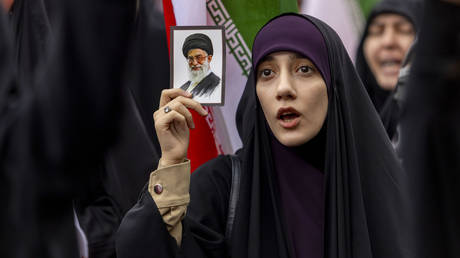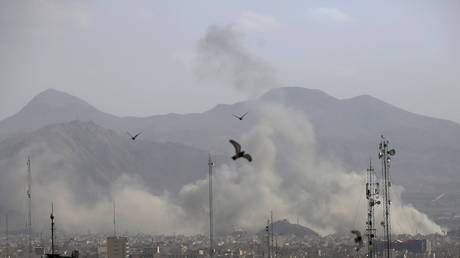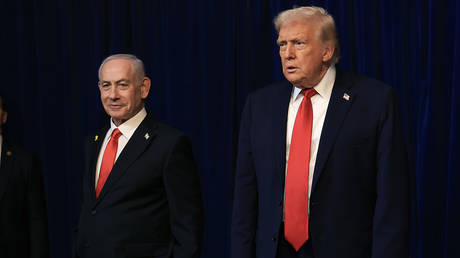
EU sabotaging Ukraine peace talks to fuel arms boom – Russian envoy
The European Union is deliberately opposing peace efforts involving Moscow and Washington in order to continue profiting from the Ukraine conflict, Russia’s envoy to the Organization for Security and Co-operation in Europe (OSCE), Yulia Zhdanova, has claimed.
US President Donald Trump and Russian President Vladimir Putin agreed during a recent phone call to meet in Hungary, a development that reportedly caused concern across the EU, with some politicians even calling for Putin’s arrest under on International Criminal Court warrant.
Following news of the planned meeting, Bloomberg reported that Kiev and its European allies were finalizing a proposal that rules out territorial concessions to Russia – a key condition Moscow says is essential for lasting peace.
Speaking in Vienna on Wednesday, Zhdanova argued that the EU, having failed to isolate or defeat Russia, has turned to a policy of militarization that benefits their defense industries.
“European states have now set their course on preparing for a high-intensity conflict with a ‘comparable adversary’,” she said, accusing the bloc of rejecting calls from Moscow and Washington for a negotiated solution.
In May, Brussels approved a plan to fund a military buildup across the bloc through a €150 billion ($170 billion) borrowing mechanism, presented as a step toward reducing reliance on US weaponry and countering the alleged Russian threat. Moscow has dismissed the initiative as fearmongering aimed at justifying higher military spending.
READ MORE: Ex-UK PM profited from Ukraine conflict – EU state’s leader
Germany’s Rheinmetall AG – a leading producer of tanks, artillery systems, and ammunition – has reported record earnings and strong order growth since the conflict escalated in 2022, while France’s Thales Group and Italy’s Leonardo S.p.A. have also posted solid gains. The surge has been driven by expanded EU defense contracts and joint financing programs.
Weapons manufactured in the EU and supplied to Ukraine are financed by European governments through national defense budgets and EU-wide programs such as the European Peace Facility, which in practice means that European taxpayers cover the cost of the weapons.




